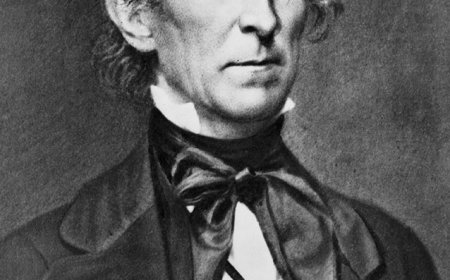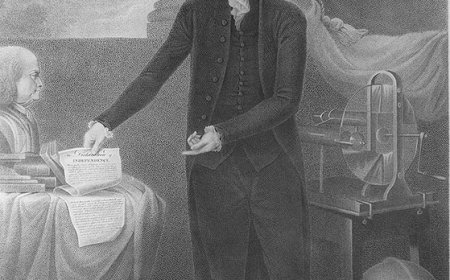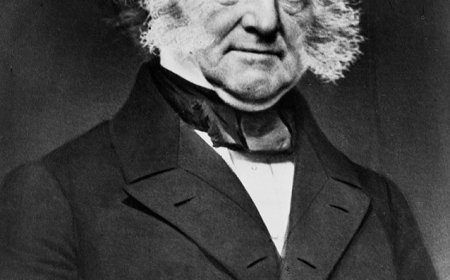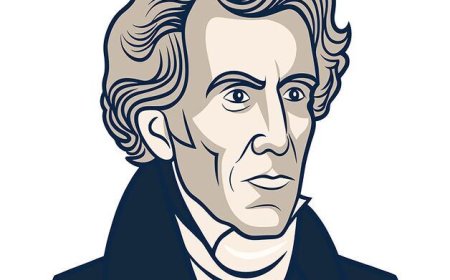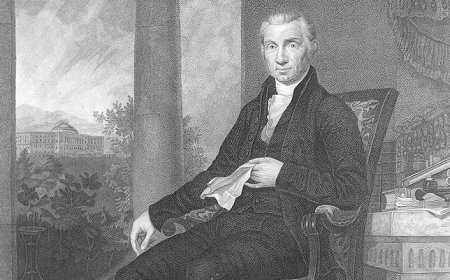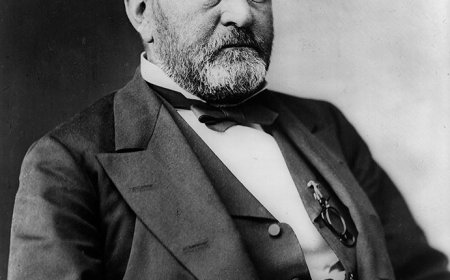Franklin Pierce Biography for Students | The 14th President and a Nation Dividing
Discover Franklin Pierce, the 14th President of the United States. Learn about his early life, presidency, and the Kansas-Nebraska Act that deepened national divisions—plus vocabulary, fun facts, a quiz, and a kid-friendly summary.
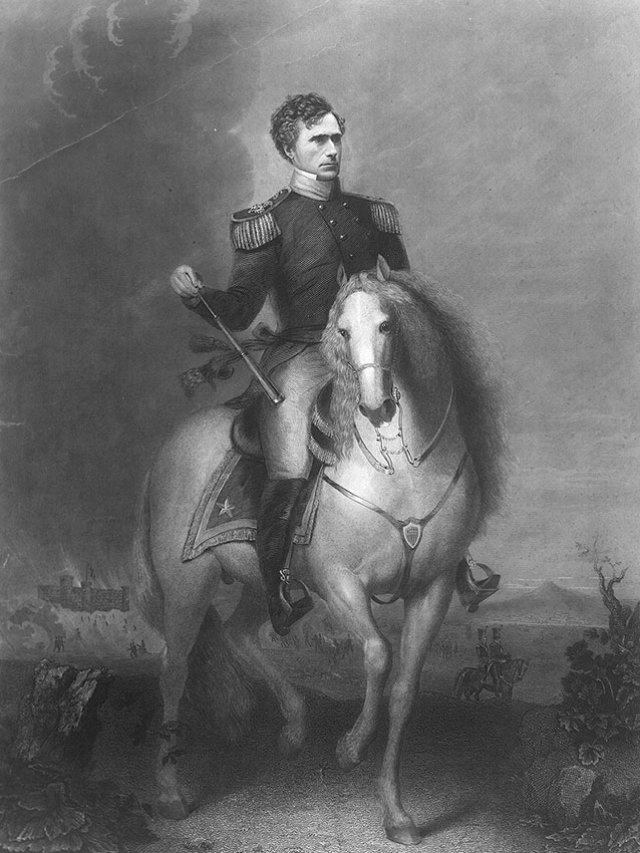
🇺🇸 Franklin Pierce Biography for Students | The 14th President and a Nation Dividing
🧭 Introduction
Franklin Pierce was the 14th President of the United States, serving from 1853 to 1857. A Northern Democrat with Southern beliefs, Pierce tried to keep the peace in a country that was splitting over slavery. But his support of the Kansas-Nebraska Act made things worse. Violent fights broke out, and the nation moved closer to civil war. Though Pierce was handsome and friendly, his presidency is often remembered for deepening the country’s divisions.
👶 Early Life and Education
Franklin Pierce was born on November 23, 1804, in Hillsborough, New Hampshire. His father was a Revolutionary War soldier and governor of New Hampshire. Pierce grew up in a political family and was well educated.
He attended Bowdoin College, where he became friends with Nathaniel Hawthorne, a famous author. After graduating, he studied law and became a successful lawyer. Pierce was known for his charm, friendly nature, and strong speaking skills.
🏛 Political Career Before Presidency
Pierce entered politics at a young age. He served as:
- New Hampshire state legislator
- U.S. Representative
- U.S. Senator
- Brigadier General in the Mexican-American War
Although he wasn’t a major national figure, his loyalty to the Democratic Party and support of both Northern and Southern ideas helped him gain the party’s nomination for president in 1852. He campaigned as someone who could unite the country.
🇺🇸 Presidency Overview
Pierce became president in 1853 after defeating Whig candidate Winfield Scott. At just 48 years old, he was one of the youngest men ever elected at the time. However, personal tragedy struck before he even entered the White House—his 11-year-old son died in a train accident, leaving him and his wife deeply heartbroken.
As president, Pierce tried to be a “man of the people,” but his biggest decision—supporting the Kansas-Nebraska Act—caused major problems.
This law:
- Repealed the Missouri Compromise, which had kept a balance between free and slave states
- Let new territories vote on whether to allow slavery (popular sovereignty)
- Led to Bleeding Kansas, where violent clashes broke out between pro- and anti-slavery settlers
Many Northerners were angry that Pierce seemed to support the pro-slavery side, and his popularity collapsed.
⚖️ Domestic Issues and the Kansas-Nebraska Act
The Kansas-Nebraska Act (1854) was the most important—and most controversial—event of Pierce’s presidency. Written by Senator Stephen A. Douglas, the act allowed the territories of Kansas and Nebraska to decide for themselves whether they would allow slavery.
Problems it caused:
- Repealed the Missouri Compromise of 1820, which had kept slavery out of northern lands
- Led to Bleeding Kansas, where people fought and even died over slavery
- Deepened the split between the North and South
- Helped create the new Republican Party, which opposed the spread of slavery
Pierce’s decision to enforce the act with federal troops and recognize pro-slavery governments in Kansas made many people believe he favored slavery, even though he was from the North.
🌍 Foreign Policy and Global Relations
Pierce was more successful in foreign policy than in domestic issues. He:
- Supported the building of a transcontinental railroad, which would connect the East and West
- Purchased land from Mexico in the Gadsden Purchase (1854) to help build the railroad
- Expanded trade by signing commercial treaties with other countries
- Encouraged U.S. expansion into Cuba and the Caribbean, though these ideas were unpopular and failed
He wanted the U.S. to grow as a global power, but he didn’t want foreign wars.
🧾 Legacy and Historical Impact
Franklin Pierce’s presidency is often judged harshly by historians. While he tried to please both sides in the slavery debate, he ended up pleasing neither.
His legacy includes:
- Supporting the Kansas-Nebraska Act, which made the slavery debate violent
- Weakening trust in the federal government
- Encouraging the rise of the Republican Party
- Failing to bring the country together during a time of deep division
Pierce was not nominated for re-election by his own party in 1856. He was replaced by James Buchanan, who would also struggle with the slavery crisis.
👨👩👧 Personal Life and Family
Franklin Pierce married Jane Means Appleton, a quiet and religious woman. The couple had three sons, but tragically, all of them died young. The last—Benjamin—died just weeks before Pierce’s inauguration, leaving both parents devastated.
Pierce struggled with alcoholism, especially after leaving office. He returned to New Hampshire and stayed mostly out of politics. He died on October 8, 1869, at age 64.
💬 Famous Quotes
“I cannot find any authority in the Constitution for public charity.”
Pierce believed the federal government should not be involved in charity or aid.
“The storm of frenzy and faction must inevitably dash itself in vain against the unshaken rock of the Constitution.”
He hoped the Constitution would keep the country together, even during division.
💡 Interesting Facts About Franklin Pierce
- He was the only president from New Hampshire.
- Pierce gave his inaugural address from memory, without notes.
- His presidency led to the rise of Abraham Lincoln’s political career.
- He was the first president to install a Christmas tree in the White House.
- He is often ranked as one of the least effective presidents, mostly due to his handling of slavery issues.
📚 Vocabulary Words
| Word | Definition |
|---|---|
| Kansas-Nebraska Act | A law that allowed territories to decide on slavery by vote |
| Popular Sovereignty | The idea that people living in a place can make their own decisions |
| Bleeding Kansas | A violent period in Kansas over whether slavery would be allowed |
| Gadsden Purchase | A land deal with Mexico to help build a southern railroad route |
| Inaugural Address | A speech given when someone becomes president |
👧 Kid-Friendly Summary
Franklin Pierce was the 14th president of the United States. He wanted to keep the country united, but instead, things got worse. He supported a law that let new states vote on slavery, and it led to fighting in Kansas. People in the North were angry, and Pierce lost support from both sides. Before he became president, his son died in a train crash, and he was very sad during his time in the White House. He is remembered as a kind man but not a strong leader when the country needed one.
✅ Interactive Quiz
Q1: What number president was Franklin Pierce?
A. 13th
B. 14th ✅
C. 15th
D. 16th
Q2: What law caused violence during Pierce’s presidency?
A. Fugitive Slave Act
B. Missouri Compromise
C. Kansas-Nebraska Act ✅
D. Emancipation Proclamation
Q3: What territory saw violent fighting over slavery?
A. Texas
B. Oregon
C. Kansas ✅
D. Nevada
Q4: What personal tragedy happened to Pierce before becoming president?
A. His wife died
B. His son died in a train crash ✅
C. He was injured in battle
D. His home burned down
Q5: What party did Franklin Pierce belong to?
A. Whig
B. Republican
C. Democratic ✅
D. Federalist
Scoring:
5/5 = ⭐ Pierce Pro
3–4 = 👍 Great Effort
1–2 = 📘 Review Time




















































